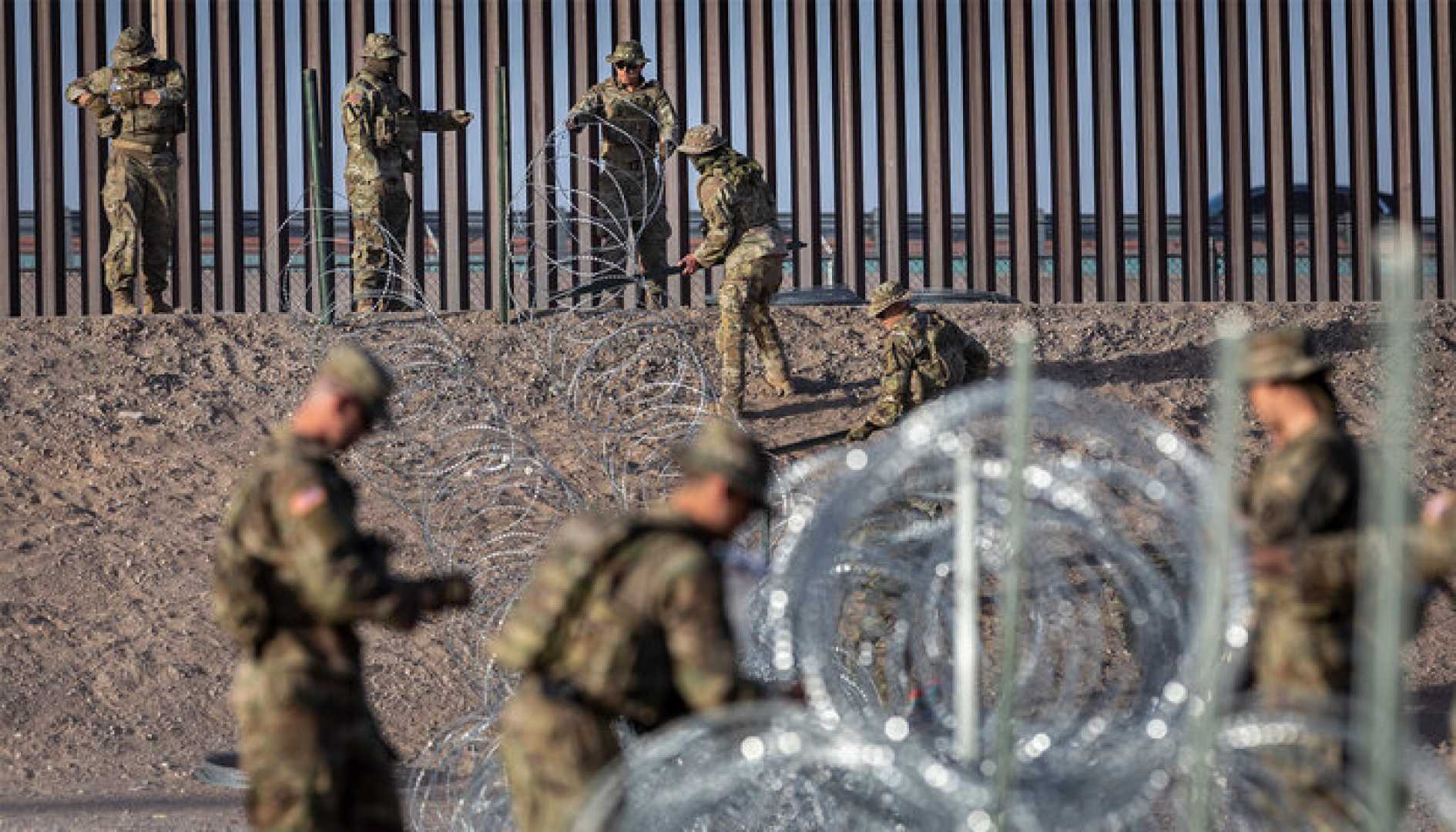Politics
Trump’s Looming Decision on Insurrection Act Sparks Concerns of Militarization

WASHINGTON, D.C. — As President Donald Trump’s administration approaches the April 20 deadline for a pivotal report from the Department of Defense and the Department of Homeland Security, tensions are rising over the potential invocation of the Insurrection Act of 1807. This act could allow Trump to deploy armed forces within the United States, particularly at the southern border, under the pretext of restoring ‘operational control’ amidst ongoing immigration challenges.
The report, expected to align with Trump’s agenda, will assess conditions at the border and recommend actions that could range from enhanced military presence to deployment against civilians. Legal experts and commentators are voicing concerns that such measures could infringe upon civil rights and lead to domestic unrest.
‘This entire strategy from Trump is based on the demonization of immigrants,’ Vanessa Cárdenas, executive director of America’s Voice, told The Bulwark. ‘It prepares the public psychologically for extreme measures and violations of civil liberties.’ The framing of the current situation as an ‘invasion’ is part of the justification being used for stricter immigration policies.
Historically, the Insurrection Act has been invoked in situations of significant civil unrest. It was last used in 1992 during the aftermath of the Rodney King riots in Los Angeles. Critics argue that the invocation of this act by Trump, however unlikely it may seem, could represent a dramatic escalation of his administration’s immigration enforcement tactics, already deemed controversial even among some of his supporters.
Kerri Talbot, executive director of the Immigration Hub, expressed her fears regarding Trump’s willingness to act beyond legal limits. ‘I think the American public and Congress are starting to realize that he’s not paying attention to the usual constraints of the law,’ Talbot said. ‘The implications are dire and outlandish.’
Members of the military have also raised concerns. Charles Kuck, an Atlanta-based immigration attorney, pointed out the cognitive dissonance in asserting that the border is safe while simultaneously claiming that an insurrection must be quelled. ‘I don’t know how you can say the border is closed and safer than ever and then say there’s an insurrection that needs to be put down,’ Kuck said.
As scrutiny intensifies, many are worried about how Trump may define ‘insurrection’. The language of the Insurrection Act is notably vague, leaving room for broad interpretation. Activists and legal scholars fear that Trump could portray any form of protest or dissent as an unlawful obstruction, prompting military intervention.
‘Even if the military was hesitant, they might find themselves in a situation where they are forced to comply with orders,’ a political strategist noted. This presents a troubling prospect for civil society, especially since historical instances have shown that legal systems often react slowly to executive overreach.
As April draws closer, both political leaders and community members are mobilizing to prepare for possible fallout from Trump’s decisions regarding the Insurrection Act. Local leaders from border states are considering calling up their National Guard as a proactive measure to defend against federal mobilization aimed at civilian enforcement. ‘The response must be swift and unified,’ Cárdenas urged.
Meanwhile, the White House has remained silent regarding inquiries about whether Trump indeed plans to invoke the act. As the public awaits the forthcoming report, many Americans remain anxious about the implications for civil liberties and the changing political landscape.
Looking ahead, the April deadline looms as a potential turning point, with observers closely monitoring the administration’s next steps and their wider ramifications across the United States.












